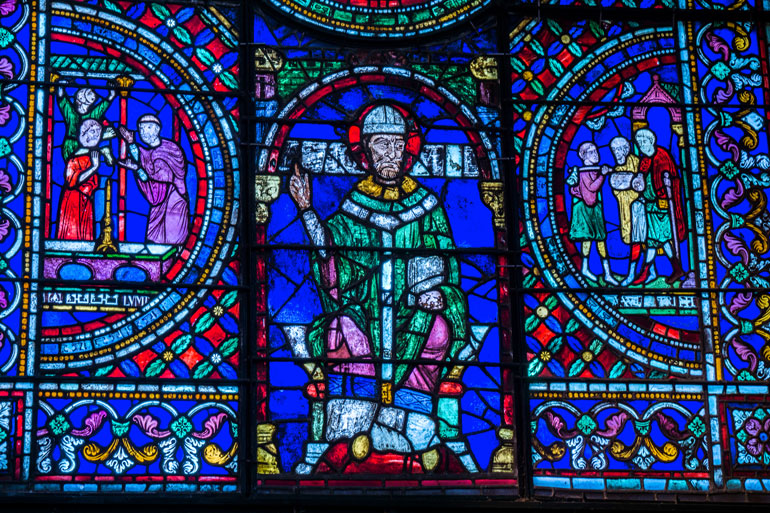Thomas Becket

Thomas Becket stained glass in Canterbury Cathedral.
Thomas Becket (also called Thomas à Becket) was born about 1120 and was murdered (assassinated) on 29 December 1170 by the altar of Canterbury Cathedral following a misinterpretation of a statement by King Henry II. He was canonised as a martyr and his shrine became a source of pilgrimage from the Middle Ages onwards.
Thomas Becket worked at first in the household of Theobald of Bec, the Archbishop of Canterbury. He was so bright and trustworthy, and so much a man of honour, that Theobald recommended him to King Henry II to be Lord Chancellor (chief of the national treasury). Becket became Lord Chancellor in January 1155.
Becket then succeeded Theobald on 23 May 1162 as Archbishop of Canterbury. This meant that Becket could no longer be Chancellor, and more than that, he was now in charge of protecting the church from the power of the king. He took this very seriously. This led to a series of quarrels with the King, at one point making it necessary for him to flee to the continent of Europe. Becket fought back against the king, by threatening excommunication and interdict against the king. At that point, Henry offered a compromise that would allow Thomas to return to England from exile.
Becket continued to excommunicate his opponents in the church. When he heard of of Becket's actions, Henry is popularly believed to have said "Will no one rid me of this turbulent priest?", and this was famously used by William Shakespeare in his play about Henry II. It is one of the most well known sayings from English history.
Whatever Henry said, it was taken as a royal command, and four knights, Reginald FitzUrse, Hugh de Morville, William de Tracy and Richard le Breton,[1] set out to challenge Becket. The knights informed Becket he was to go to Winchester to give an account of his actions to the king, but Becket refused. Then the knights killed him inside the cathedral near the cloister stairs.
Soon after, the faithful throughout Europe began venerating Becket as a martyr, and in 1173, just two years after his death, he was canonised. Henry also humbled himself with public penance at Becket's tomb.
The shrine to Thomas Becket was destroyed in 1538, during the Dissolution of the Monasteries, on the orders of King Henry VIII. The king also had Becket's bones destroyed, and ordered that all mention of his name be removed.

